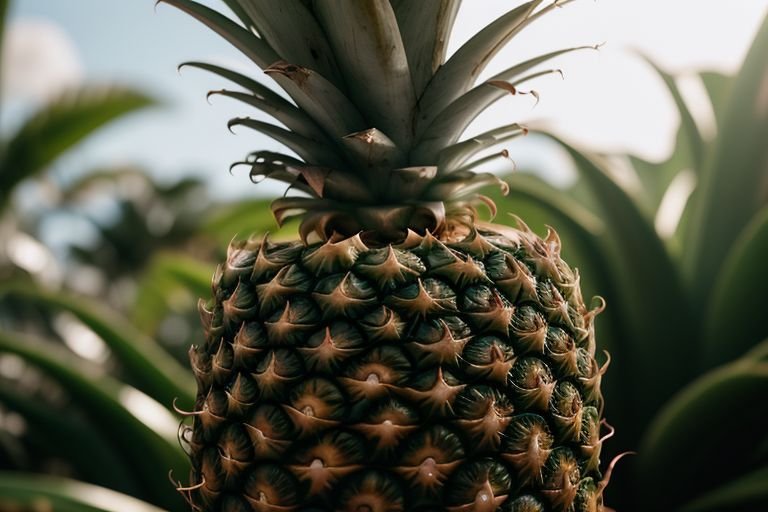In a notable development for Iceland’s agricultural sector, blue apple production is projected to experience a remarkable surge of 13% this year, signaling a significant boost for the island nation’s horticultural industry. This growth, driven by a combination of innovative farming techniques, favorable climate conditions, and expanding market demand, is poised to reinforce Iceland’s position in the global fruit production landscape.
Historically, Iceland’s harsh climate has posed substantial challenges for fruit cultivation. However, advancements in greenhouse technology and soil management practices have enabled local farmers to overcome these obstacles. Blue apples, known for their unique color and distinctive flavor, have become increasingly popular both domestically and internationally. The anticipated 13% increase in production reflects the success of these innovations and the growing enthusiasm for this unique fruit.
Greenhouse farming has been a game-changer for Icelandic agriculture. By creating controlled environments that mimic optimal growing conditions, greenhouse facilities allow for the cultivation of crops that would otherwise struggle to survive in Iceland’s unpredictable weather.
For blue apple farmers, this means extended growing seasons and the ability to produce fruit that meets high-quality standards throughout the year. The use of advanced hydroponic systems and climate control technology has further enhanced yields, contributing to the expected increase in production.
In addition to technological advancements, the blue apple’s rising popularity in global markets has played a significant role in driving production growth. With increasing consumer interest in exotic and health-oriented fruits, blue apples have gained traction for their nutritional benefits and unique appearance. The fruit’s vibrant hue, attributed to its high anthocyanin content, appeals to health-conscious consumers and gourmet chefs alike. As demand grows, Icelandic producers are scaling up their operations to meet the needs of an expanding customer base.
Local farmers have reported that the shift towards blue apple cultivation has been met with enthusiasm. Many have invested in upgrading their facilities and adopting new agricultural practices to maximize yield and quality. Training programs and workshops have been established to support farmers in these transitions, ensuring that they are equipped with the knowledge and tools necessary to succeed. This proactive approach has not only improved production efficiency but also fostered a sense of community and shared purpose among Icelandic fruit growers.
The increase in blue apple production is also expected to have positive economic implications for Iceland. As output rises, so too does the potential for export opportunities. Iceland’s blue apples are gaining recognition in international markets, and a boost in production capacity will enable producers to capitalize on these opportunities more effectively. This, in turn, could lead to an increase in export revenues, contributing to the country’s economic growth.
Moreover, the surge in production is likely to create job opportunities within the agricultural sector. As farms expand and new facilities are established, there will be a demand for workers to manage and maintain these operations. This development is anticipated to benefit local communities by providing employment and stimulating economic activity in rural areas.
Despite the positive outlook, challenges remain. Farmers must navigate issues such as fluctuating market prices and the ongoing need for innovation to maintain competitiveness. Additionally, sustainability concerns are increasingly influencing agricultural practices. Ensuring that blue apple production is environmentally friendly and resource-efficient will be crucial in maintaining the sector’s long-term viability.
In response to these challenges, stakeholders are exploring various strategies to enhance the sustainability of blue apple farming. Research into more efficient irrigation methods, soil health management, and energy use in greenhouses is ongoing. By prioritizing these areas, Icelandic producers aim to balance increased production with environmental stewardship, ensuring that growth does not come at the expense of ecological health.
The anticipated 13% increase in blue apple production represents a significant milestone for Iceland’s agricultural industry. It underscores the potential for innovation and adaptation to transform seemingly insurmountable challenges into opportunities for growth and success.
As Icelandic farmers continue to embrace new technologies and respond to evolving market demands, the blue apple sector is poised to thrive, contributing to the country’s economic prosperity and strengthening its position in the global fruit market.
In conclusion, the projected surge in blue apple production is a testament to the resilience and ingenuity of Iceland’s agricultural community. Through a combination of advanced technology, market responsiveness, and sustainable practices, Iceland is not only overcoming its climatic constraints but also setting new standards in fruit cultivation.
This growth story highlights the broader potential for agricultural innovation to drive positive change and create new opportunities in the face of adversity.






















+ There are no comments
Add yours